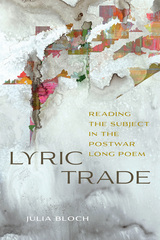13 start with M start with M

What would something unlike us--a chimpanzee, say, or a computer--have to be able to do to qualify as a possible knower, like us? To answer this question at the very heart of our sense of ourselves, philosophers have long focused on intentionality and have looked to language as a key to this condition. Making It Explicit is an investigation into the nature of language--the social practices that distinguish us as rational, logical creatures--that revises the very terms of this inquiry. Where accounts of the relation between language and mind have traditionally rested on the concept of representation, this book sets out an alternate approach based on inference, and on a conception of certain kinds of implicit assessment that become explicit in language. Making It Explicit is the first attempt to work out in detail a theory that renders linguistic meaning in terms of use--in short, to explain how semantic content can be conferred on expressions and attitudes that are suitably caught up in social practices.
At the center of this enterprise is a notion of discursive commitment. Being able to talk--and so in the fullest sense being able to think--is a matter of mastering the practices that govern such commitments, being able to keep track of one's own commitments and those of others. Assessing the pragmatic significance of speech acts is a matter of explaining the explicit in terms of the implicit. As he traces the inferential structure of the social practices within which things can be made conceptually explicit, the author defines the distinctively expressive role of logical vocabulary. This expressive account of language, mind, and logic is, finally, an account of who we are.
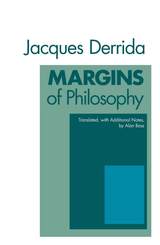
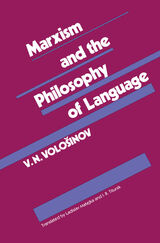
V. N. Vološinov’s important work, first published in Russian in 1929, had to wait a generation for recognition. This first paperback edition of the English translation will be capital for literary theorists, philosophers, linguists, psychologists, and many others.
Vološinov is out to undo the old disciplinary boundaries between linguistics, rhetoric, and poetics in order to construct a new kind of field: semiotics or textual theory. Ladislav Matejka and I. R. Titunik have provided a new preface to discuss Vološinov in relation to the great resurgence of interest in all the writing of the circle of Mikhail Bakhtin.
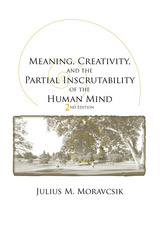
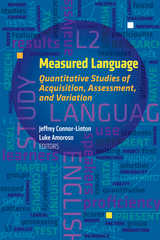
Measured Language: Quantitative Studies of Acquisition, Assessment, and Variation focuses on ways in which various aspects of language can be quantified and how measurement informs and advances our understanding of language. The metaphors and operationalizations of quantification serve as an important lingua franca for seemingly disparate areas of linguistic research, allowing methods and constructs to be translated from one area of linguistic investigation to another.
Measured Language includes forms of measurement and quantitative analysis current in diverse areas of linguistic research from language assessment to language change, from generative linguistics to experimental psycholinguistics, and from longitudinal studies to classroom research. Contributors demonstrate how to operationalize a construct, develop a reliable way to measure it, and finally validate that measurement—and share the relevance of their perspectives and findings to other areas of linguistic inquiry. The range and clarity of the research collected here ensures that even linguists who would not traditionally use quantitative methods will find this volume useful.
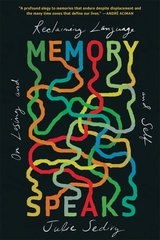
“At once an eloquent memoir, a wide-ranging commentary on cultural diversity, and an expert distillation of the research on language learning, loss, and recovery.”—The Economist
“Insightful and informative…Sedivy examines what happens to memory, dreams, and even the sense of self when you enter another language.”—Eva Hoffman, author of Lost in Translation
“Engagingly describes the disorienting and sometimes shattering experience of feeling one’s native language atrophy as a new language takes hold…Sedivy elegantly captures why the language(s) we use are so dear to us and how they play a central role in our identities.”—Science
“A profound elegy to memories that endure despite displacement and the many time zones that define our lives.”—André Aciman
Julie Sedivy was two years old when her parents left Czechoslovakia. By the time she graduated from college, she rarely spoke Czech, and English had taken over her life. When her father died unexpectedly and her strongest link to her native tongue was severed, she discovered that more was at stake than the loss of language: she began to feel she was losing herself.
In Memory Speaks, Sedivy explores the brain’s capacity to learn—and forget—languages at various stages of life, poignantly combining a rich body of psychological research with a moving story that is at once deeply personal and universally resonant.
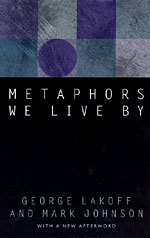
In this updated edition of Lakoff and Johnson's influential book, the authors supply an afterword surveying how their theory of metaphor has developed within the cognitive sciences to become central to the contemporary understanding of how we think and how we express our thoughts in language.
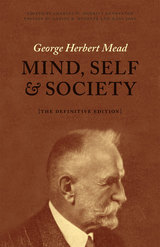
This collection gets to the heart of Mead’s meditations on social psychology and social philosophy. Its penetrating, conversational tone transports the reader directly into Mead’s classroom as he teases out the genesis of the self and the nature of the mind. The book captures his wry humor and shrewd reasoning, showing a man comfortable quoting Aristotle alongside Alice in Wonderland.
Included in this edition are an insightful foreword from leading Mead scholar Hans Joas, a revealing set of textual notes by Dan Huebner that detail the text’s origins, and a comprehensive bibliography of Mead’s other published writings. While Mead’s lectures inspired hundreds of students, much of his brilliance has been lost to time. This new edition ensures that Mead’s ideas will carry on, inspiring a new generation of thinkers.
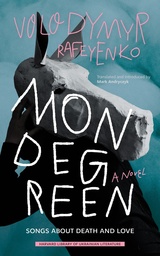
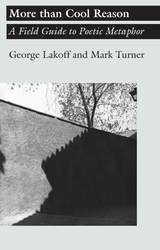
"In this bold and powerful book, Lakoff and Turner continue their use of metaphor to show how our minds get hold of the world. They have achieved nothing less than a postmodern Understanding Poetry, a new way of reading and teaching that makes poetry again important." — Norman Holland, University of Florida
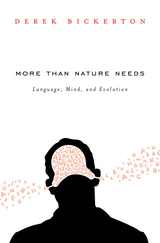
The human mind is an unlikely evolutionary adaptation. How did humans acquire cognitive capacities far more powerful than anything a hunting-and-gathering primate needed to survive? Alfred Russel Wallace, co-founder with Darwin of evolutionary theory, saw humans as "divine exceptions" to natural selection. Darwin thought use of language might have shaped our sophisticated brains, but his hypothesis remained an intriguing guess--until now. Combining state-of-the-art research with forty years of writing and thinking about language evolution, Derek Bickerton convincingly resolves a crucial problem that both biology and the cognitive sciences have hitherto ignored or evaded.
What evolved first was neither language nor intelligence--merely normal animal communication plus displacement. That was enough to break restrictions on both thought and communication that bound all other animals. The brain self-organized to store and automatically process its new input, words. But words, which are inextricably linked to the concepts they represent, had to be accessible to consciousness. The inevitable consequence was a cognitive engine able to voluntarily merge both thoughts and words into meaningful combinations. Only in a third phase could language emerge, as humans began to tinker with a medium that, when used for communication, was adequate for speakers but suboptimal for hearers.
Starting from humankind's remotest past, More than Nature Needs transcends nativist thesis and empiricist antithesis by presenting a revolutionary synthesis--one that instead of merely repeating "nature and nurture" clichés shows specifically and in a principled manner how and why the synthesis came about.
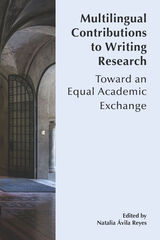
This edited collection offers chapters based on presentations at the Second Latin American Association of Writing Studies in Higher Education and Professional Contexts International Congress (II ALES) held in Santiago, Chile, in 2018. Together, the contributors to the collection—drawn from nine countries and writing in three languages—highlight the many perspectives, resources, and traditions that enrich and expand international conversations about writing, writing instruction, and writing research. The multiple locations from which the chapters in this collection emerge contribute significantly to the situated findings and concerns they address, with the authors of each chapter considering the social, lingual, and institutional contexts shaping their work. Drawing on both robust traditions and cutting-edge research, this collection makes a distinctive contribution to discussions of writing in and beyond Latin America.
This book is also available as an open access ebook through the WAC Clearinghouse.
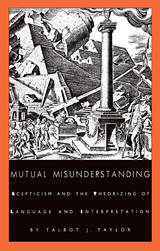
Mutual Misundertanding thus presents a strikingly original analysis of the rhetorical patterns underlying Western linguistic thought, as exemplified in the works of John Locke, Jacques Derrida, Gottlob Frege, Jonathan Culler, Noam Chomsky, Ferdinand de Saussure, H. Paul Grice, Michael Dummet, Stanley Fish, Alfred Schutz, Barbara Herrnstein Smith, Harold Garfinkel, and others.
This analysis reveals how, by the combined effect of appeals to "commonsense" and anxieties about implications of relativism, scepticism has a determining role in the discursive development of a number of the intellectual disciplines making up the "human sciences" today, including critical theory, literary hermeneutics, philosophy of language and logic, communication theory, discourse and conversation analysis, pragmatics, stylistics, and linguistics. Consequently, this provocative study will be of value to readers from a wide variety of disciplinary backgrounds.
READERS
Browse our collection.
PUBLISHERS
See BiblioVault's publisher services.
STUDENT SERVICES
Files for college accessibility offices.
UChicago Accessibility Resources
home | accessibility | search | about | contact us
BiblioVault ® 2001 - 2024
The University of Chicago Press




